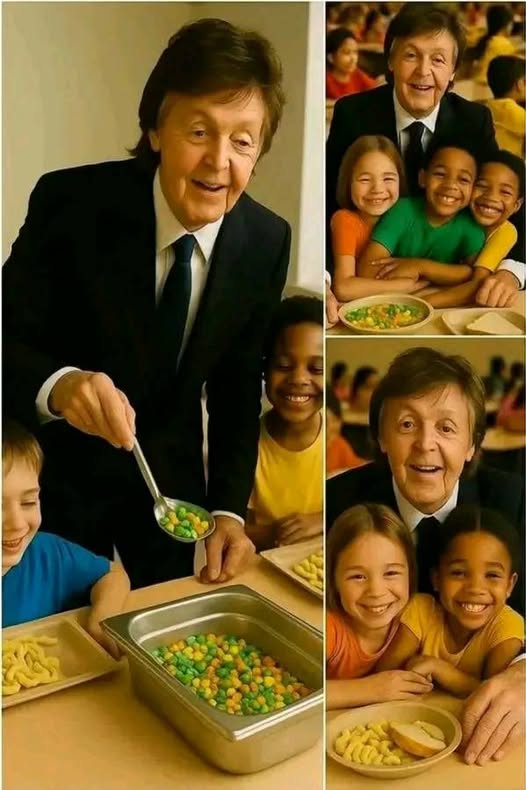🌙 Introduction: The Voice That Shaped Rock History
For decades, Stevie Nicks has cast a spell over generations of music lovers. With her husky voice, witchy aesthetic, and soul-baring lyrics, she became not just the face of Fleetwood Mac’s golden era, but also a powerful solo artist in her own right. From Rhiannon to Edge of Seventeen, her songs have become spiritual anthems for anyone navigating love, heartbreak, and the search for identity.
But behind the mystique lies a human story filled with pain, sacrifice, and reflection. In a recent emotional revelation, Nicks opened up about something fans rarely hear from an icon: regret. Her confession — “I wouldn’t want to ever go back there” — points to a deep and raw chapter in her life as a performer that continues to haunt her, even after years of critical acclaim.
In this blog post, we explore what Stevie Nicks meant by those words, why it matters, and what her story teaches us about fame, loss, and personal growth.
🌪️ The Highs and the Haunted Years
To understand Stevie Nicks’ biggest regret as a performer, you have to revisit the turbulent decades of Fleetwood Mac. The 1970s were a creative peak and personal hurricane for the band. With tangled relationships, breakups within the group, and a legendary amount of drug use, their music was electric — but their reality often dark.
At the heart of it all, Stevie stood strong, draped in shawls and secrets, pouring raw emotion into every verse she sang. The price of that vulnerability? A lifetime of emotional and physical strain. Her performances may have been magical, but backstage, Nicks was battling personal demons that no spotlight could hide.
🖤 The Era She Would Never Relive
When Nicks said, “I wouldn’t want to ever go back there,” she wasn’t talking about missing the fame or the music — she was referring to the personal cost of those early years.
The regret? Not her career choices, not the songs, but the way substance abuse, toxic love, and relentless touring robbed her of joy in some of her most successful moments. At one point, her addiction became so intense that she had to check into the Betty Ford Clinic in the 1980s, where she began the long journey of healing.
In hindsight, Nicks wishes she had taken better care of herself sooner — mentally, emotionally, and physically. “I sang like my life depended on it,” she once said. “But sometimes I didn’t want to be there. I was tired. I was hurting. And nobody knew.”
Her biggest regret as a performer? Losing parts of herself for the sake of the stage.
💔 The Relationship That Left a Scar
One can’t ignore the elephant in the room when it comes to Stevie Nicks’ regrets: her relationship with Lindsey Buckingham. Their love was the muse behind many of Fleetwood Mac’s greatest hits, but also the root of some of its greatest heartaches.
Performing night after night beside the man who broke her heart — while pretending to be unfazed — created an emotional dissonance that nearly broke her spirit. “Imagine singing a love song with your ex for 40 years,” she once said. That emotional labor was never easy.
In fact, one of the regrets she hints at is staying in that dynamic longer than she should have — sacrificing her own emotional healing for the sake of band harmony and audience expectation.
✨ Reinvention Through Pain
The remarkable thing about Stevie Nicks is that she turned her regrets into revolutions. After leaving the chaos of the ’70s and conquering her addictions, she re-emerged as a solo artist with a voice more powerful than ever.
Her albums in the ’80s and ’90s reflected growth and independence, with songs like Rooms on Fire and Talk to Me telling stories not of victimhood, but of resilience.
Even in her sixties and seventies, Stevie kept touring, mentoring younger artists like Harry Styles, and proving that reinvention is possible at any age. But she never pretended the past was painless. Her honesty about her biggest regret as a performer only makes her legacy more real — more relatable.
🧘♀️ What Stevie Nicks Teaches Us About Regret
Regret is often misunderstood. It’s not about wishing we had lived a different life — it’s about recognizing where we lost pieces of ourselves, and choosing to never return there again.
Stevie Nicks teaches us that even icons carry wounds. Her biggest regret wasn’t failure — it was the cost of her success on her own wellbeing. And by speaking about it now, she’s helping others — especially women in demanding careers — learn to recognize the warning signs before they burn out.
She’s a reminder that strength isn’t just about surviving — it’s about evolving.

💬 Stevie’s Words Still Echo Today
In a culture obsessed with comebacks and nostalgia, Stevie’s refusal to “go back there” is radical. She’s not romanticizing her past. She’s not cashing in on suffering. She’s drawing a boundary — saying no to glamorizing pain.
For fans who grew up with her, it’s a healing moment. For younger artists watching her, it’s a warning and a guiding light.
Her words resonate because they come from someone who’s lived the extremes — and come out on the other side not just alive, but wise.
📣 Social Media Caption Ideas
- “Stevie Nicks opens up about the price of fame and the one chapter she’d never relive. A must-read for anyone chasing a dream. 💔✨ #StevieNicks #RegretAndRedemption”
- “Not all regrets are about mistakes. Some are about what we sacrificed to survive. Stevie Nicks speaks her truth — and it’s hauntingly real. 🎤🖤 #StevieNicks #BiggestRegret”
- “‘I wouldn’t want to ever go back there.’ When legends look back, we all listen. Stevie’s honesty hits deep. 💫 #StevieNicksWisdom”
🪞 A Final Reflection: The Beauty of Moving Forward
Today, Stevie Nicks stands tall — not in spite of her regrets, but because of them. Her voice may carry the same mystical tone, but behind it is now a woman who’s learned how to protect her magic.
Her biggest regret as a performer — the period when she lost herself — is no longer her prison. It’s her lesson, her story, her strength.
So when she sings now, there’s a new kind of fire — not born from chaos, but from clarity.
And maybe that’s what makes her music more powerful than ever.


